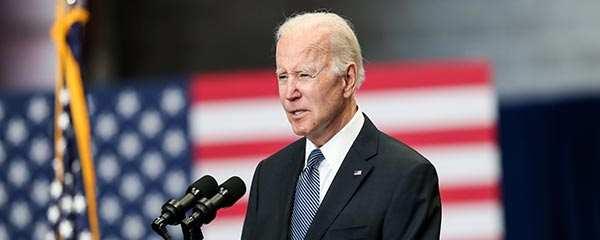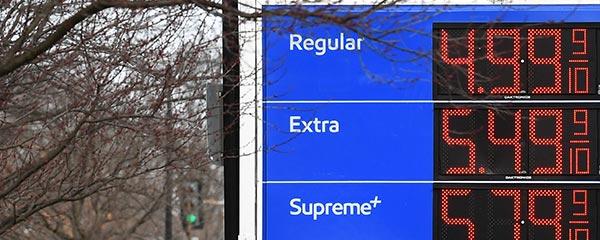Story Highlights
- Gallup's Economic Confidence Index remains at -39
- 39% mention economic issues as most important U.S. problem
- Inflation, high cost of living named by 17% as top problem
WASHINGTON, D.C. -- Americans' confidence in the economy remains very low, and mentions of economic issues as the most important problem in the U.S. are at their highest point since 2016. Inflation, which registered as the top economic problem last month and continues to be, was previously at this level in 1984.
Economic Confidence Index Remains Low
Gallup regularly tracks Americans' ratings of national economic conditions as excellent, good, only fair or poor, as well as their views on whether the economy is getting better or worse. The combined responses are used to create the Gallup Economic Confidence Index (ECI), which has a theoretical range of +100 (if all respondents say the economy is excellent or good and that it is getting better) to -100 (if all say it is poor and getting worse).
In the latest Gallup poll, conducted April 1-19, four in five U.S. adults rate current economic conditions in the country as only fair (38%) or poor (42%), with few describing conditions as excellent (2%) or good (18%). Furthermore, 76% of Americans say the economy is getting worse, 20% say it is improving, and 3% think it is staying the same.
The resulting -39 Economic Confidence Index reading is identical to last month but well above the record low of -72 in October 2008, during the Great Recession. The ECI has been in negative territory since July 2021 as Americans have watched the inflation rate climb to its highest levels since 1981 and felt its effects on their own finances. In addition to rising inflation, the U.S. public is increasingly worried about high fuel prices.
Economic Issues Top Most Important Problem List
Roughly four in 10 Americans name economic issues as the most important problem facing the U.S. This figure includes 17% who mention inflation or the high cost of living, 12% who name the economy in general and 6% who say fuel prices. Each of these specific economic issues is mentioned less than the government, which remains a top problem for 20% of U.S. adults.
Mentions of the coronavirus have dwindled to 4% in the latest poll after consistently rating as one of the top issues for the past two years.
The percentage of U.S. adults who cite any economic concern as the country's most important problem has edged up four percentage points this month to 39%, the highest level in six years. Still, this is well below the highs seen during economic recessions in February 2009 (86%) and March 1991 (73%).
As was the case last month, mentions of inflation are at their highest point since 1984.
Republicans and Republican-leaning independents are more likely than Democrats and Democratic-leaning independents to cite economic issues (42% vs. 33%, respectively) and inflation specifically (20% vs. 14%) as the nation's top problem. Likewise, more Republicans than Democrats mention the government/poor leadership (24% vs. 17%) and illegal immigration (12% vs. 3%). For their part, Democrats (8%) are significantly more likely than Republicans (1%) to name race relations.
Implications
Economic confidence remains sharply low but still well above readings during the Great Recession. However, if inflation continues to rise and gas prices remain elevated heading into the summer months, economic confidence in the U.S. may well fall further.
To stay up to date with the latest Gallup News insights and updates, follow us on Twitter.
Learn more about how the Gallup Poll Social Series works.




